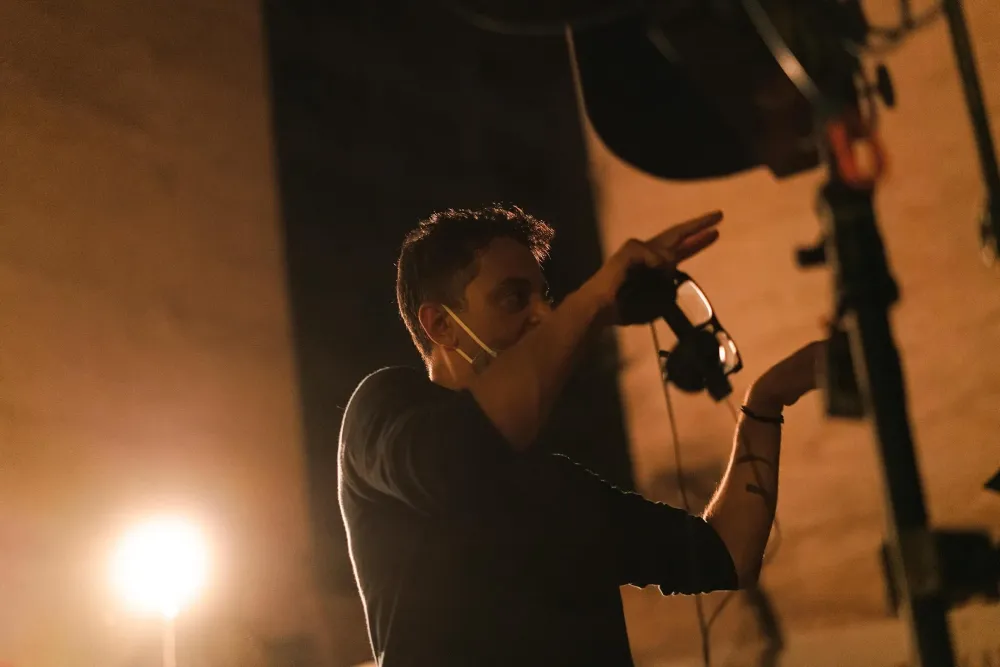Subscribe to The Curb podcast via RSS feed, Apple Podcasts, Spotify, or iHeart Radio. Download the episode directly here.
Jason Raftopoulous is a filmmaker who I owe my continued writing career to. In 2018, Jason released West of Sunshine, a drama about an average bloke, Jim, played by the excellent Damian Hill, scrounging through the back streets of Melbourne for money to pay back a loan shark. With a synopsis like that, West of Sunshine suggests that it'll another one of those crime-drama films with a bit of retribution and violence along the way. Instead, under the guidance and careful hand of Jason, there's a distinct sense of family, place, time, and a realisation that within Jim exists the desperation of the everyday Aussie: someone just trying to get by and falling foul of the lure of gambling.
I owe my writing career to Jason because I had submitted my review of West of Sunshine for consideration at the Australian Film Critics Association awards, and as a film that opens itself up to exploration, examination, and understanding existence, I was able to write a piece that was worthy of a win. I'd considered stepping away from writing and West of Sunshine pulled me forward in an unexpected way.
Years later, Jason is back with his second feature film, Voices in Deep. Here is another film that opens itself up to critical examination as Jason embarks on another exploration of the weight of humanity, of the turmoil of trauma, and the struggle for existence. Jason takes us to Greece, the land where millions of refugees wash up on the shores of Athens seeking a future of some kind.
In Voices in Deep, we're introduced to two characters who exist in the orbit of one another; Hannah Sims' Bobby, an Australian who travelled to Greece to help refugees, but now finds herself stranded in a foreign land with no sense of self and no sense of finding a path out. Then there's Christos Karavevas' Tarek, a refugee who lives on the streets with his brother, engaging in dangerous sex work to make a living.
Through Bobby and Tarek, we see the unresolved trauma of the ongoing refugee crisis. Voices in Deep is a response to the powerless and overwhelming nature of trauma, whether we're in the midst of it, or observers from afar. It doesn't seek to provide a resolution to the trauma, but instead asks us to consider its existence. To listen to its cries and acknowledge that its pain carries weight.
Jason's voice has been in the back of my mind as a continual reminder about the importance and value of discussing Australian films and chatting with Aussie filmmakers. Each year I write a list of the voices I want to listen to, to talk to, to engage with, and to give space to on this platform I call the Curb. Jason was at the top of my list for 2025, and I'm grateful that the following conversation exists.
As you'll hear, the last time we talked was when West of Sunshine came out. I spent a brief period of time chatting with Jason and Dame, and had intended to catch up with them both when they came over to Perth for the Q&A. But nerves and the conflicting events meant I never attended the screening, and I never got to shake Dame's hand in person. He passed away not long after this. His mark on Australian film lingers.
This interview, or conversation, starts in a state of flow. We had spent some time talking before I hit record, and the emotionality of the first question hit Jason, and myself, in an unexpected way. In fact, the emotionality of this conversation hit us both in an unexpected way. I can say, quite comfortably, that this is one of the finest conversations I've been able to bring you on this podcast.
In the following conversation, there are questions I don't ask, like who Jason's mentor is, or the films that have inspired him. But, I've almost deliberately left them for our next discussion, whenever that happens in the future. There has to be hope that we will talk again.

